化学学报 ›› 2019, Vol. 77 ›› Issue (11): 1156-1163.DOI: 10.6023/A19070259 上一篇 下一篇
所属专题: 多孔材料:金属有机框架(MOF)
综述
投稿日期:2019-07-11
发布日期:2019-09-09
通讯作者:
张先正
E-mail:xz-zhang@whu.edu.cn
作者简介:曾锦跃, 于2018年在武汉大学获得博士学位. 2018年至今在武汉大学生物医用高分子材料教育部重点实验室从事博士后研究. 主要研究兴趣是多孔晶态框架材料|王小双, 于2016年在武汉大学获得理学学士学位, 现为武汉大学化学与分子科学学院在读博士研究生. 研究方向是纳米材料的制备与功能化修饰及其在抗肿瘤领域的应用|张先正, 武汉大学教授、博士生导师. 1994、1997、2000年相继于武汉大学获学士、硕士和博士学位. 2000年9月~2001年8月新加坡材料研究所Research Associate. 2001年9月~2004年8月美国康奈尔大学博士后. 自2004年9月起在武汉大学化学与分子科学学院任教授, 主要从事生物医用高分子的研究|卓仁禧, 武汉大学教授、博士生导师. 主要从事生物医用高分子的研究
基金资助:
Zeng Jinyuea, Wang Xiaoshuanga, Zhang Xianzhengab*( ), Zhuo Renxia
), Zhuo Renxia
Received:2019-07-11
Published:2019-09-09
Contact:
Zhang Xianzheng
E-mail:xz-zhang@whu.edu.cn
Supported by:文章分享

恶性肿瘤由于其易转移、复发等特点,已经严重危害到人类的生命健康.近年来,研究人员设计了大量纳米药物载体,将抗肿瘤药物安全有效地运载到肿瘤,有效地提高了药效并降低了毒副作用.金属有机框架材料(metal-organic frameworks,MOFs)是一类有序、多孔的晶态材料,具有比表面积大、结构可设计性强、易生物降解等独特优势,已经被广泛应用于气体吸附与分离、催化、药物传递、生物大分子固载以及肿瘤治疗等方面.目前,基于MOFs的生物医用研究主要集中在MOF材料的可控合成,表面修饰,基于MOF独特理化性质发展的多模式成像技术以及肿瘤靶向的药物运载技术等几个方面.主要介绍了基于MOFs构建的生物功能化材料在肿瘤治疗中的应用,并对其在生物医学领域的应用进行了展望.
曾锦跃, 王小双, 张先正, 卓仁禧. 功能化金属-有机框架材料在肿瘤治疗中的研究进展[J]. 化学学报, 2019, 77(11): 1156-1163.
Zeng Jinyue, Wang Xiaoshuang, Zhang Xianzheng, Zhuo Renxi. Research Progress in Functional Metal-Organic Frameworks for Tumor Therapy[J]. Acta Chimica Sinica, 2019, 77(11): 1156-1163.
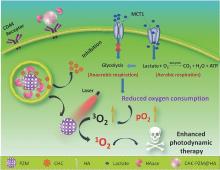




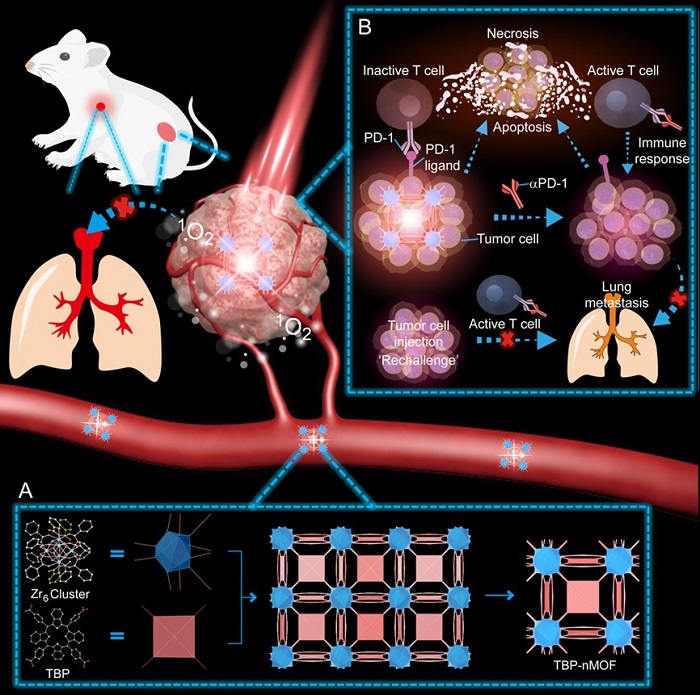
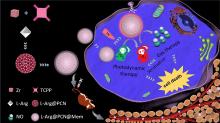

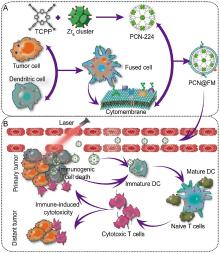


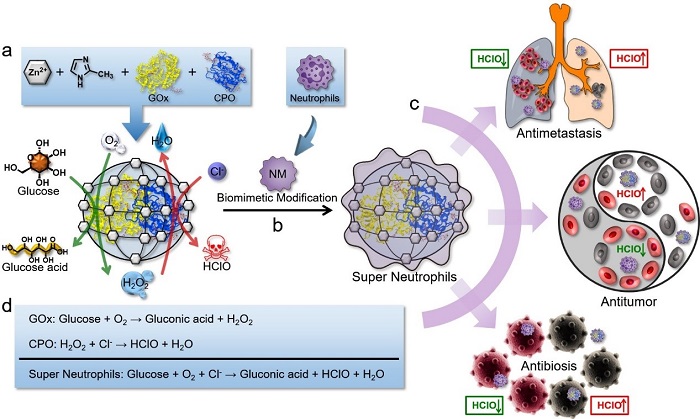
| [1] |
Hanahan D.; Weinberg R. A. Cell 2011, 144, 646
doi: 10.1016/j.cell.2011.02.013 |
| [2] |
Emmenegger U.; Kerbel R. S. Nature 2010, 468, 637
doi: 10.1038/468637a |
| [3] |
Stark G. R. Nature 1986, 324, 407
doi: 10.1038/324407a0 |
| [4] | (a) Meyer, R. A.; Sunshine, J. C.; Green, J. J. Trends Biotechnol. 2015, 33, 514. |
| (b) Alvarez-Lorenzo, C.; Concheiro, A. Curr. Opin. Biotechnol. 2013, 24, 1167. | |
| (c) Carmona-Ribeiro, A. M. J. Liposome Res. 2007, 17, 165. | |
| (d) Qian, H.; Liu, B.; Jiang, X. Mater. Today Chem. 2018, 7, 53. | |
| [5] | (a) Shi, J.; Votruba, A. R.; Farokhzad, O. C.; Langer, R. Nano Lett. 2010, 10, 3223. |
| (b) Shi, J.; Philip, W. K.; Richard, W.; Omid, C. F. Nat. Rev. Cancer 2017, 1, 20. | |
| [6] | (a) Patricia, H.; Ruxandra, G.; Tarek, B.; Phoebe, K. A.; Guillaume, M.; Patrick, C.; Gerard, F.; Russell, E. M.; Christian, S. Chem. Rev. 2012, 112, 1232. |
| (b) Zeng, J. Y.; Wang, X. S.; Song, W. F.; Cheng, H.; Zhang, X. Z. Adv. Ther. 2019, 2, 1800100. | |
| (c) Bian, L.; Li, W.; Wei, Z.; Liu, X.; Li, S. Acta Chim. Sinica 2018, 76, 303. | |
| (卞磊, 李炜, 魏振振, 刘晓威, 李松, 化学学报, 2018, 76, 303.) | |
| [7] | (a) O'Keeffe, M.; Peskov, M. A.; Ramsden, S. J.; Yaghi, O. M. Acc. Chem. Res. 2008, 41, 1782. |
| (b) Cao, L.; Wang, T.; Wang, C. Chin. J. Chem. 2018, 36, 754. | |
| (c) Zhang, W. Q.; Li, Q. Y.; Yang, X. Y.; Ma, Z.; Wang, H. H.; Wang, X. J. Acta Chim. Sinica 2017, 75, 80. | |
| (张文强, 李秋艳, 杨馨雨, 马征, 王欢欢, 王晓军, 化学学报, 2017, 75, 80.) | |
| (d) Zhao, R.; Hu, M.; Li, S.; Zhai, Q.; Jiang, Y. Acta. Chim. Sinica 2017, 75, 293. | |
| (赵睿南, 胡满成, 李淑妮, 翟全国, 蒋育澄, 化学学报, 2017, 75, 293.) | |
| [8] | (a) Horike, S.; Shimomura, S.; Kitagawa, S. Nat. Chem. 2010, 1, 695. |
| (b) Li, Y.; Zou, B.; Xiao, A. Chin. J. Chem. 2017, 35, 1501. | |
| (c) Sun, D.; Li, Z. Chin. J. Chem. 2017, 35, 135. | |
| (d) Yang, W.; Liang, H.; Qiao, Z. Acta Chim. Sinica 2018, 76, 785. | |
| (杨文远, 梁红, 乔智威, 化学学报, 2018, 76, 785.) | |
| [9] | (a) Kitaura, R.; Akiyama, G.; Seki, K.; Kitagawa. S. Angew. Chem., Int. Ed. 2003, 42, 428. |
| (b) Mulfort, K. L.; Hupp, J. T. J. Am. Chem. Soc. 2007, 129, 9604. | |
| (c) Eddaoudi, M.; Kim, J.; Rosi, N.; Vodak, D.; Wachter, J.; O'Keeffe, M.; Yaghi. O. M. Science 2002, 295, 469. | |
| (d) Rieter, W. J.; Pott, K. M.; Taylor, K. M. L.; Lin, W. B. J. Am. Chem. Soc. 2008, 130, 11584. | |
| (e) Horcajada, P.; Chalati, T.; Serre, C.; Gillet, B.; Sebrie, C.; Baati, T.; Eubank, J. F.; Heurtaux, D.; Clayette, P.; Kreuz, C.; Chang, J. S.; Hwang, Y. K.; Marsaud, V.; Bories, P. N.; Cynober, L.; Gil, S.; Ferey, G.; Couvreur, P.; Gref, R. Nat. Mater. 2010, 9, 172. | |
| [10] | (a) Tranchemontagne, D. J.; Mendoza-Cortes, J. L.; O'Keeffe, M.; Yaghi, O. M. Chem. Soc. Rev. 2009, 38, 1257. |
| (b) Shekhah, O.; Wang, H.; Paradinas, M.; Ocal, C.; Schupbach, B.; Terfort, A.; Zacher, D.; Fischer, R. A.; Woll, C. Nat. Mater. 2009, 8, 481. | |
| (c) Zeng, J. Y.; Zhang, M. K.; Peng, M. Y.; Gong, D.; Zhang, X. Z. Adv. Funct. Mater. 2018, 28, 1705451. | |
| (d) Shieh, F. K.; Wang, S. C.; Yen, C. I.; Wu, C. C.; Dutta, S.; Chou, L. Y.; Morabito, J. V.; Hu, P.; Hsu, M. H.; Wu, K. C. W.; Tsung, C. K. J. Am. Chem. Soc. 2015, 137, 4276. | |
| [11] | (a) Zhang, J.; Wojtas, L.; Larsen, R. W.; Eddaoudi, M.; Zaworotko, M. J. J. Am. Chem. Soc. 2009, 131, 17040. |
| (b) Ferey, G. Chem. Soc. Rev. 2009, 37, 191. | |
| (c) Guo, X.; Chen, X.; Su, D.; Liang, C. Acta Chim. Sinica 2018, 76, 22. | |
| (郭小玲, 陈霄, 苏党生, 梁长海, 化学学报, 2018, 76, 22.) | |
| [12] | (a) Burtch, N. C.; Jasuja, H.; Walton, K. S. Chem. Rev. 2014, 114, 10575. |
| (b) Zeng, J. Y.; Wang, X. S.; Zhang, M. K.; Li, Z. H.; Gong, D.; Pan, P.; Huang, L.; Cheng, S. X.; Cheng, H.; Zhang, X. Z. ACS Appl. Mater. Interfaces 2017, 9, 43143. | |
| [13] | (a) Zeng, J. Y.; Wang, X. S.; Qi, Y. D.; Yu, Y.; Zeng, X.; Zhang, X. Z. Angew. Chem., Int. Ed. 2019, 131, 5748. |
| (b) Farha, O. K.; Hupp, J. T. Acc. Chem. Res. 2010, 43, 1166. | |
| [14] |
Rocca J. D.; Liu D. M.; Lin W. B. Acc. Chem. Res. 2011, 44, 957
doi: 10.1021/ar200028a |
| [15] |
Zhou H. C.; Long J. R.; Yaghi O. M. Chem. Rev. 2012, 112, 673
doi: 10.1021/cr300014x |
| [16] | Zeng, J. Y. Ph.D. Dissertation, Wuhan University, Wuhan, 2018. |
| 曾锦跃, 博士论文, 武汉大学, 武汉, 2018. | |
| [17] | (a) Taylor-Pashow, K. M. L.; Della Rocca, J.; Xie, Z.; Tran. S.; Lin, W. B. J. Am. Chem. Soc. 2009, 131, 14261. |
| (b) Bellido, E.; Hidalgo, T.; Lozano, M. V.; Guillevic, M.; Simon-Vazquez, R.; Santander-Ortega, M. J.; Gonzalez-Fernandez, A.; Serre, C.; Alonso, M. J.; Horcajada, P. Adv. Healthcare Mater. 2015, 4, 1246. | |
| [18] | (a) Furukawa, S.; Reboul, J.; Diring, S.; Sumida, K.; Kitagawa, S. Chem. Soc. Rev. 2014, 43, 5700. |
| (b) Horcajada, P.; Gref, R.; Baati, T.; Allan, P. K.; Maurin, G.; Couvreur, P.; Férey, G.; Morris, R. E.; Serre, C. Chem. Rev. 2012, 112, 1232. | |
| (c) Morris, W.; Doonan, C. J.; Furukawa, H.; Banerjee, R.; Yaghi, O. M. J. Am. Chem. Soc. 2008, 130, 12626. | |
| [19] |
Chen Z. X.; Liu M. D.; Zhang M. K.; Wang S. B.; Xu Lu.; Li C. X.; Gao F.; Xie B. R.; Zhong Z. L.; Zhang X. Z. Adv. Funct. Mater. 2018, 28, 1803498
doi: 10.1002/adfm.201803498 |
| [20] | (a) Wang, X. S.; Zeng, J. Y.; Zhang, M. K.; Zeng, X.; Zhang, X. Z. Adv. Funct. Mater. 2018, 28, 1801783. |
| (b) He, Y.; Xu, J.; Sun, X.; Ren, X.; Maharjan, A.; York, P.; Su, Y.; Li, H.; Zhang, J. Theranostics 2019, 9, 2489. | |
| [21] |
Chen W. H.; Liao W. C.; Sohn Y. S.; Fadeev M.; Cecconello A.; Nechushtai R.; Willner I. Adv. Funct. Mater. 2018, 28, 1705137
doi: 10.1002/adfm.201705137 |
| [22] |
Zeng J. Y.; Zou M. Z.; Zhang M. K.; Wang X. S.; Zeng X.; Cong H. J.; Zhang X. Z. ACS Nano 2018, 12, 4630
doi: 10.1021/acsnano.8b01186 |
| [23] | (a) Liang, W. B.; Xu, H. S.; Carraro, S.; Maddigan, N. K.; Li, Q. W.; Bell, S. G.; Huang, D. M.; Tarzia, A.; Solomon, M. B.; Amenitsch, H.; Vaccari, L.; Sumby, C. J.; Falcaro, P.; Doonan, C. J. J. Am. Chem. Soc. 2019, 141, 2348. |
| (b) Zhang, J. P.; Zhu, A. X.; Lin, R. B.; Qi, X. L.; Chen, X. M. Adv. Mater. 2011, 23, 1268. | |
| [24] | (a) Chen, W. H.; Vazquez-González, M.; Zoabi, A.; Abu-Reziq, R.; Willner, I. Nat. Catal. 2018, 1, 689. |
| (b) Liang, K.; Ricco, R.; Doherty, C. M.; Styles, M. J.; Bell, S.; Kirby, N.; Mudie, S.; Haylock, D.; Hill, A. J.; Doonan, C. J.; Falcaro, P. Nat. Commun. 2015, 6, 7240. | |
| [25] |
Peng S.; Bie D. L.; Sun Y. Z. S.; Liu M.; Cong H. J.; Zhou W. T.; Xia Y. C.; Tang H.; Deng H. X.; Zhou X. Nat. Commun. 2018, 9, 1293
doi: 10.1038/s41467-018-03650-w |
| [26] |
Wan S. S.; Zeng J. Y.; Cheng H.; Zhang X. Z. Biomaterials 2018, 185, 51
doi: 10.1016/j.biomaterials.2018.09.004 |
| [27] |
Anderson S. L.; Boyd P. G.; Gładysiak A.; Nguyen T. N.; Palgrave R. G.; Kubicki D.; Emsley L.; Bradshaw D.; Rosseinsky M. J.; Smit B.; Stylianou K. C. Nat. Commun. 2019, 10, 1612
doi: 10.1038/s41467-019-09486-2 |
| [28] |
Du Y. J.; Gao J.; Zhou L. Y.; Ma L.; He Y.; Zheng X. F.; Huang Z. H.; Jiang Y. J. Adv. Sci. 2019, 6, 1801684
doi: 10.1002/advs.201801684 |
| [29] |
Wan S. S.; Zhang L.; Zhang X. Z. ACS Cent. Sci. 2019, 5, 327
doi: 10.1021/acscentsci.8b00822 |
| [30] |
Yang Y.; Zhu W.; Dong Z.; Chao Z.; Xu L.; Chen M.; Liu Z. Adv. Mater. 2017, 29, 1703588
doi: 10.1002/adma.201703588 |
| [31] | (a) Zhu, J. Y.; Zheng, D. W.; Zhang, M. K.; Yu, W. Y.; Qiu, W, X.; Hu, J. J.; Feng, J.; Zhang, X. Z. Nano Lett. 2016, 16, 5895. |
| (b) Zou, M. Z.; Liu, W. L.; Li, C. X.; Zheng, D. W.; Zeng, J. Y.; Gao, F.; Ye, J. J.; Zhang, X. Z. Small 2018, 14, 1801120. | |
| (c) Li, S. Y.; Xie, B. R.; Cheng, H.; Li, C. X.; Zhang, M. K.; Qiu, W. X.; Liu, W. L.; Wang, X. S.; Zhang, X. Z. Biomaterials 2018, 151, 1. | |
| [32] | (a) Cheng, H.; Zhu, J. Y.; Li, S. Y.; Zeng, J. Y.; Lei, Q.; Chen, K. W.; Zhang, C.; Zhang, X. Z. Adv. Funct. Mater. 2016, 26, 7847. |
| (b) Li, S. Y.; Cheng, H.; Qiu, W. X.; Zhang, L.; Wan, S. S.; Zeng, J. Y.; Zhang, X. Z. Biomaterials 2017, 142, 149. | |
| [33] |
Liu W. L.; Zou M. Z.; Liu T.; Zeng J. Y.; Li X.; Yu W. Y.; Li C. X.; Song W.; Feng J.; Zhang X. Z. Adv. Mater. 2019, 31, 1900499
doi: 10.1002/adma.201900499 |
| [34] |
Zhang C.; Zhang L.; Wu W.; Gao F.; Li R. Q.; Song W.; Zhuang Z. N.; Liu C. J.; Zhang X. Z. Adv. Mater. 2019, 31, 1901179
doi: 10.1002/adma.201901179 |
| [35] |
Li S. Y.; Cheng H.; Xie B. R.; Qiu W. X.; Zeng J. Y.; Li C. X.; Zhang L.; Liu W. L.; Zhang X. Z. ACS Nano 2017, 11, 7006
doi: 10.1021/acsnano.7b02533 |
| [1] | 郭彩霞, 马小杰, 王博. 金属有机框架基复合材料的制备及其光热性能研究[J]. 化学学报, 2021, 79(8): 967-985. |
| [2] | 王涛, 赵璐, 王科伟, 白云峰, 冯锋. 共价有机框架的合成及其在肿瘤治疗中的应用研究进展[J]. 化学学报, 2021, 79(5): 600-613. |
| [3] | 李佳欣, 李蓓, 王纪康, 何蕾, 赵宇飞. 水滑石(LDHs)及其衍生物在生物医药领域的研究进展[J]. 化学学报, 2021, 79(3): 238-256. |
| [4] | 廖妮, 钟霞, 梁文斌, 袁若, 卓颖. ECL金属-有机框架(MOF)生物传感平台用于肿瘤细胞分泌H2O2的测定[J]. 化学学报, 2021, 79(10): 1257-1264. |
| [5] | 张留伟, 陈麒先, 王静云. 活性氧响应型抗肿瘤前药研究进展[J]. 化学学报, 2020, 78(7): 642-656. |
| [6] | 曹萌轩, 代晓光, 陈贝贝, 赵娜娜, 徐福建. 纳米材料与细菌结合应用于肿瘤治疗[J]. 化学学报, 2020, 78(10): 1054-1063. |
| [7] | 刘腾, 程亮, 刘庄. 二维过渡金属硫族化合物在生物医学中的应用[J]. 化学学报, 2015, 73(9): 902-912. |
| [8] | 刘兴奋, 蔡小慧, 黄艳琴, 石琳, 范曲立, 黄维. 生物素功能化水溶性共轭聚合物的合成、表征及其生物分析应用[J]. 化学学报, 2014, 72(4): 440-446. |
| [9] | 何燕萍, 谭衍曦, 张健. 基于尺寸识别和离子交换实现有机染料分离的一例阴离子型MOF[J]. 化学学报, 2014, 72(12): 1228-1232. |
| 阅读次数 | ||||||
|
全文 |
|
|||||
|
摘要 |
|
|||||